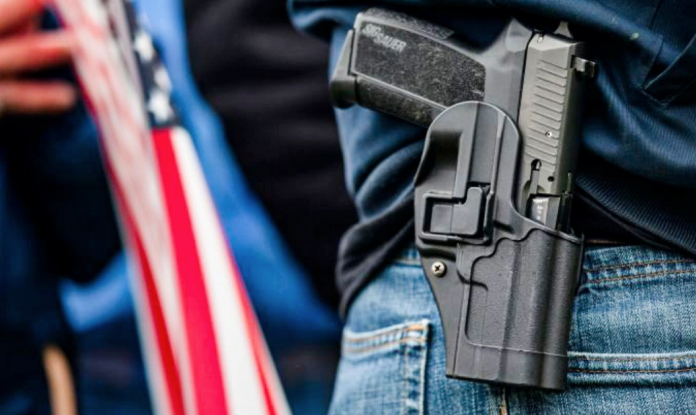The Third Circuit Court of Appeals has ruled that Bryan Range, a Pennsylvania man convicted of food stamp fraud nearly three decades ago, cannot be barred from firearm ownership under federal law.
In a
decision issued on Dec. 23, the en banc court reaffirmed its earlier
ruling that 18 U.S.C. § 922(g)(1), a federal statutory provision commonly referred to as the “felon-in-possession ban,” is unconstitutional as applied to Range, who has no history of violence.
The ruling, issued by a 13-2 majority, revisits the case after the U.S. Supreme Court
vacated and remanded it for reconsideration in light of
U.S. v. Rahimi, a 2024 decision that upheld firearm restrictions for individuals under domestic violence restraining orders. Despite the remand, the Third Circuit maintained its original position, finding that the felon-in-possession statute lacks historical support when it comes to Range, who appealed a district court’s decision to reject his initial claim that the statute violated his Second Amendment rights.
“We agree with Range that, despite his false statement conviction, he remains among ’the people’ protected by the Second Amendment,” the Third Circuit’s majority opinion states. “And because the government did not carry its burden of showing that the principles underlying our Nation’s history and tradition of firearm regulation support disarming Range, we will reverse and remand.”
The Third Circuit emphasized that its ruling is narrow in scope because it is limited to Range’s individual circumstances. Range had challenged the constitutionality of the felon-in-possession ban only as it applied to him in light of his violation of a
Pennsylvania statute that makes it a felony to wilfully provide a false statement or misrepresentation when applying for federal assistance such as food stamps.
While the Third Circuit found that the Supreme Court’s decision in Rahimi “did bless disarming (at least temporarily) physically dangerous people,” it noted that the law upheld by the high court required a finding that the individual being disarmed represents a credible threat to someone else’s physical safety.
“Our decision today is a narrow one,” the opinion reads. “The record contains no evidence that Range poses a physical danger to others. Because the government has not shown that our Republic has a longstanding history and tradition of depriving people like Range of their firearms, § 922(g)(1) cannot constitutionally strip him of his Second Amendment rights.”
While the majority opinion pointedly avoided broader constitutional questions about the felon-in-possession law, Judge Patty Schwartz, in dissent, warned of “far-reaching consequences” of the decision.
“The Majority’s ruling is not cabined in any way and, in fact, rejects all historical support for disarming non-violent felons,” she wrote in a dissenting opinion. “As a result, the Majority’s analytical framework leads to only one conclusion: there will be no, or virtually no, non-violent felony or felony-equivalent crime that will bar an individual from possessing a firearm.”
Schwartz argued that the majority opinion is both contrary to the sentiment in the Supreme Court’s decision in Rahimi and to the nation’s history, which permitted the disarming of some nonviolent offenders, when their actions were seen as a proxy for disloyalty and disrespect for the sovereign and its laws.
“Such categorization is especially applicable here, where Range’s felony involved stealing from the government, a crime that directly undermines the sovereign,” she wrote.
While the Third Circuit’s majority opinion reinstates its earlier decision to strike down the felon-in-possession ban as it applies to Range or—as argued by Schwartz—more broadly, it also highlights continued uncertainty over the implications of the Supreme Court’s Rahimi ruling for Second Amendment jurisprudence.






















